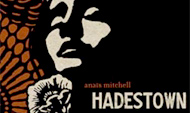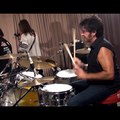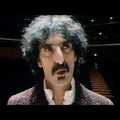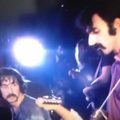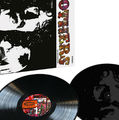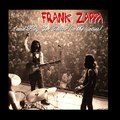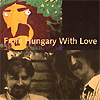 Gabor Csupo, one of the founding talents behind the animation firm that brought you The Simpsons, Duckman and Aaah! Real Monsters, escaped Hungary with a hunger for Frank Zappa's music.
Gabor Csupo, one of the founding talents behind the animation firm that brought you The Simpsons, Duckman and Aaah! Real Monsters, escaped Hungary with a hunger for Frank Zappa's music.
He tells how he became Frank's neighbor and friend, and how the man changed his life. - huH, July, 1995.
Read the whole article on Zappa Books! - Hungarian translation here.
I discovered Frank Zappa’s music in the early years of the '70s, back in my home country, Budapest, Hungary. I was about 20 years old, and just went through eight years of music training, and four years of art school, and all I cared about was art and music (big coincidence, huh?). Of course, I had some interest in girls too, but since I had no formal training regarding that matter, I thought I shouldn't mention it. It was a hell of a time for a guy like me, who was really hungry for some good music to listen to, I wanted access to anything more exciting than the local radio hits. Western music was not available to the public on vinyl or on tape. But if you were lucky, you could catch it on the radio in certain programs a couple hours a week. Of course, that just didn’t cut it. Then one day I found this hidden little place in the suburbs of Budapest, called the Record Club. They played some records smuggled in from the western countries on a cheap turntable, and anyone with a recorder could tape it for a small fee. So I dragged in my two-ton (Czechoslovakian made) reel to reel Tesla recorder and started to build a library. Since you paid for each album you taped, you had to be selective of the type of music you wanted to spend your lunch money on. I was already skinny, but after being there months I turned into a skeleton and a music expert. I found that the so-called intellectual or serious recordings with multilayered musical textures were a lot more satisfying for me to listen to, simply because I just loved that sound which was so distinct from the rest of the crap on the radio. Second, I thought that I got more bang for my money if I could listen to it more than once and still be unable to whistle along with the melody. In other words, the music didn’t get boring, but more exciting after every listen.
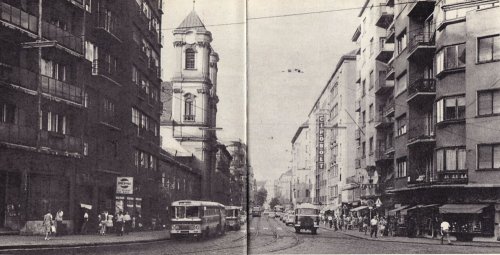
So I started to collect recordings from King Crimson, Yes, Genesis, Soft Machine, Mahavishnu Orchestra, Return to Forever, Miles Davis, Herbie Hancock, Weather Report and, of course, Frank Zappa. Frank's music become an instant favorite of mine. I understood the humor in his music without understanding his words and loved the staccato rhythm, unexpected changes in structure and melody, his excellent virtuoso guitar playing, his deep cool voice and the way he mixed rock & roll with orchestration and jazzy overtones. This guy certainly was not imitating anything or anybody out there. And that’s a sign of a true talent. I still remember the day when I finally got my own, first ever, original Zappa LP. I was walking on the streets of Budapest in late 1974, when this guy in a long coat approached me: "Would you like to buy some really cool LPs, man?" So I followed this strange character behind a dark alley, where he revealed from under his coat about five beaten up, used LPs. The usual stuff: bootleg Beatles, Rolling Stones, Bee Gees, Abba .... "Cool LPs, huh?" I said disappointedly.
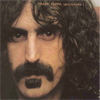 Then he revealed the last album, and there it was: Frank Zappa’s full-blown face on the cover, with his unmistakable thick mustache. Apostrophe('), it said on the top. "How much is this?" I asked with a shaky voice. "You can have that cheap, because it’s hard to whistle to," said the guy, surprised by my choice. I ended up paying a "discount price" of 1ooo forint for it, (at that time I earned 1200 forint a month working full-time as a window display designer) and although I didn’t gain weight for a while again, I never felt sorry I made that investment. I loved that album so much, I listened to it a thousand times, and yes, I could whistle to all the songs on it. Little did I know then, that later in my life Frank Zappa would become a major influence on me artistically, inspiring me in my career to always go after the new, the pioneering and the challenging, never imitating anything, and always looking to surprise with the unexpected. Little did I also know, that this man who I worshipped so much through the years would become my personal friend almost l8 years later. As it turned out, fate brought me to the same city he loved, and our friendship truly began when he discovered and appreciated my ambitions in animation, and my knowledge about his music.
Then he revealed the last album, and there it was: Frank Zappa’s full-blown face on the cover, with his unmistakable thick mustache. Apostrophe('), it said on the top. "How much is this?" I asked with a shaky voice. "You can have that cheap, because it’s hard to whistle to," said the guy, surprised by my choice. I ended up paying a "discount price" of 1ooo forint for it, (at that time I earned 1200 forint a month working full-time as a window display designer) and although I didn’t gain weight for a while again, I never felt sorry I made that investment. I loved that album so much, I listened to it a thousand times, and yes, I could whistle to all the songs on it. Little did I know then, that later in my life Frank Zappa would become a major influence on me artistically, inspiring me in my career to always go after the new, the pioneering and the challenging, never imitating anything, and always looking to surprise with the unexpected. Little did I also know, that this man who I worshipped so much through the years would become my personal friend almost l8 years later. As it turned out, fate brought me to the same city he loved, and our friendship truly began when he discovered and appreciated my ambitions in animation, and my knowledge about his music.
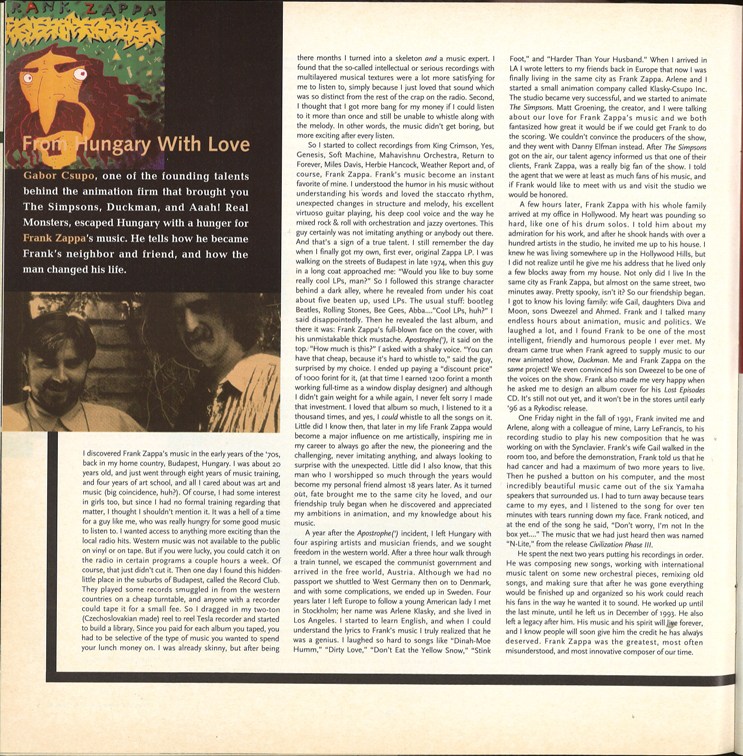
A year after the Apostrophe(‘) incident, I left Hungary with four aspiring artists and musician friends, and we sought freedom in the western world. After a three hour walk through a train tunnel, we escaped the communist government and arrived in the free world, Austria. Although we had no passport we shuttled to West Germany then on to Denmark, and with some complications, we ended up in Sweden. Four years later I left Europe to follow a young American lady I met in Stockholm; her name was Arlene Klasky, and she lived in Los Angeles. I started to learn English, and when I could understand the lyrics to Frank’s music I truly realized that he was a genius. I laughed so hard to songs like "Dinah-Moe Humm," "Dirty Love," "Don’t Eat the Yellow Snow," "Stink Foot," and "Harder Than Your Husband." When I arrived in LA I wrote letters to my friends back in Europe that now I was finally living in the same city as Frank Zappa. Arlene and I started a small animation company called Klasky-Csupo Inc. The studio became very successful, and we started to animate The Simpsons. Matt Groening, the creator, and I were talking about our love for Frank Zappa’s music and we both fantasized how great it would be if we could get Frank to do the scoring. We couldn’t convince the producers of the show, and they went with Danny Elfman instead. After The Simpsons got on the air, our talent agency informed us that one of their clients, Frank Zappa, was a really big fan of the show. I told the agent that we were at least as much fans of his music, and if Frank would like to meet with us and visit the studio we would be honored.
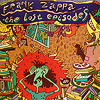 A few hours later, Frank Zappa with his whole family arrived at my office in Hollywood. My heart was pounding so hard, like one of his drum solos. I told him about my admiration for his work, and after he shook hands with over a hundred artists in the studio, he invited me up to his house. I knew he was living somewhere up in the Hollywood Hills, but I did not realize until he give me his address that he lived only a few blocks away from my house. Not only did I live in the same city as Frank Zappa, but almost on the same street, two minutes away. Pretty spooky, isn't it? So our friendship began. I got to know his loving family: wife Gail, daughters Diva and Moon, sons Dweezel and Ahmed. Frank and I talked many endless hours about animation, music and politics. We laughed a lot, and I found Frank to be one of the most intelligent, friendly and humorous people I ever met. My dream came true when Frank agreed to supply music to our new animated show, Duckman. Me and Frank Zappa on the same project! We even convinced his son Dweezil to be one of the voices on the show. Frank also made me very happy when he asked me to design an album cover for his Lost Episodes CD. It’s still not out yet, and it won’t be in the stores until early '96 as a Rykodisc release.
A few hours later, Frank Zappa with his whole family arrived at my office in Hollywood. My heart was pounding so hard, like one of his drum solos. I told him about my admiration for his work, and after he shook hands with over a hundred artists in the studio, he invited me up to his house. I knew he was living somewhere up in the Hollywood Hills, but I did not realize until he give me his address that he lived only a few blocks away from my house. Not only did I live in the same city as Frank Zappa, but almost on the same street, two minutes away. Pretty spooky, isn't it? So our friendship began. I got to know his loving family: wife Gail, daughters Diva and Moon, sons Dweezel and Ahmed. Frank and I talked many endless hours about animation, music and politics. We laughed a lot, and I found Frank to be one of the most intelligent, friendly and humorous people I ever met. My dream came true when Frank agreed to supply music to our new animated show, Duckman. Me and Frank Zappa on the same project! We even convinced his son Dweezil to be one of the voices on the show. Frank also made me very happy when he asked me to design an album cover for his Lost Episodes CD. It’s still not out yet, and it won’t be in the stores until early '96 as a Rykodisc release.
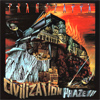 One Friday night in the fall of 1991, Frank invited me and Arlene, along with a colleague of mine, Larry LeFrancis, to his recording studio to play his new composition that he was working on with the Synclavier. Frank’s wife Gail walked in the room too, and before the demonstration, Frank told us that he had cancer and had a maximum of two more years to live. Then he pushed a button on his computer, and the most incredibly beautiful music came out of the six Yamaha speakers that surrounded us. I had to turn away because tears came to my eyes, and I listened to the song for over ten minutes with tears running down my face. Frank noticed, and at the end of the song he said, "Don’t worry, I’m not in the box yet ...." The music that we had just heard then was named "N-Lite," from the release Civilization Phase III.
One Friday night in the fall of 1991, Frank invited me and Arlene, along with a colleague of mine, Larry LeFrancis, to his recording studio to play his new composition that he was working on with the Synclavier. Frank’s wife Gail walked in the room too, and before the demonstration, Frank told us that he had cancer and had a maximum of two more years to live. Then he pushed a button on his computer, and the most incredibly beautiful music came out of the six Yamaha speakers that surrounded us. I had to turn away because tears came to my eyes, and I listened to the song for over ten minutes with tears running down my face. Frank noticed, and at the end of the song he said, "Don’t worry, I’m not in the box yet ...." The music that we had just heard then was named "N-Lite," from the release Civilization Phase III.
N-Lite (in 2 parts)
He spent the next two years putting his recordings in order. He was composing new songs, working with international music talent on some new orchestral pieces, remixing old songs, and making sure that after he was gone everything would be finished up and organized so his work could reach his fans in the way he wanted it to sound. He worked up until the last minute, until he left us in December of 1993. He also left a legacy after him. His music and his spirit will live forever, and I know people will soon give him the credit he has always deserved. Frank Zappa was the greatest, most often misunderstood, and most innovative composer of our time.







